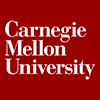Research Software Engineer 2023
 Carnegie Mellon University Carnegie Mellon University | |
 United States, Pennsylvania, Pittsburgh | |
 5000 Forbes Avenue (Show on map) | |
 Nov 08, 2024 Nov 08, 2024 | |
|
Carnegie Mellon University: Mellon College of Science: Physics Location Carnegie Mellon University, Pittsburgh, PA Open Date May 11, 2023 Description The Department of Physics at Carnegie Mellon University (CMU) invites applications for a Research Software Engineer (RSE) position, involving the development, testing and deployment of scalable analysis and machine learning (ML) pipelines to enable science with the Compact Muon Solenoid (CMS) experiment. The CMS experiment at the Large Hadron Collider (LHC) in Geneva, Switzerland, is a multi-purpose high energy physics (HEP) detector built and operated by a collaboration of 3000 scientists from all over the world. It collects data generated in the collisions delivered by the accelerator, with a complex data mining pipeline that involves the utilization of ML algorithms as well as cutting-edge data analysis techniques. So far the experiment has collected hundreds of petabytes of data, and it is expected to reach exabytes in the next decade. The RSE will be integrated in the research activities of the local CMU CMS group, as well as be in the larger CMS and HEP communities. At CMU, the RSE will work on establishing best software engineering practices, leveraging cross-disciplinary computational techniques through the collaboration with scientists from other domains, as well as with core computing experts. The RSE will work closely with faculty, student/postdoctoral researchers, and technical staff to provide computational expertise in algorithm and software design, in order to produce high-quality and sustainable research code and to train the HEP community in more modern computing tools and more professional development approaches. The RSE will have the opportunity to create partnerships with members of the CMU Software Engineering Institute, the Machine Learning Department, the Department of Statistics & Data Science, and the Department of Electrical and Computer Engineering, which all rank among the best in the world in their respective fields. The RSE will also have the chance to engage with the NSF AI Planning Institute for Data-Driven Discovery and of the LINCC Frameworks program (https://www.lsstcorporation.org/lincc/frameworks). More specifically, responsibilities will include (but are not restricted to):
Qualifications A strong background in scientific programming, academic research, and an interest in HEP are required. Essential qualifications are:
Preferred qualifications are:
Application Instructions Applications, including a cover letter, curriculum vitae, publication list, and a statement that describes your past experience and future interests should be submitted via this Interfolio site: https://apply.interfolio.com/125306. In addition, candidates should arrange for three letters of recommendation to also be uploaded to the Interfolio website. For questions about the position, please contact Matteo Cremonesi at mcremone@andrew.cmu.edu. The position is available as soon as possible but remains open until filled. Applications received by May 31, 2023 will receive full consideration. | |


